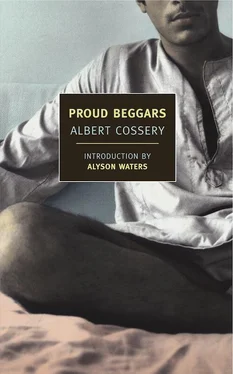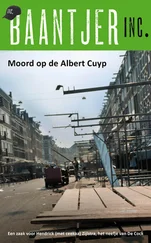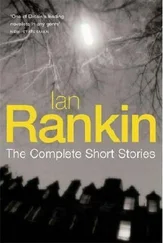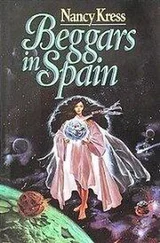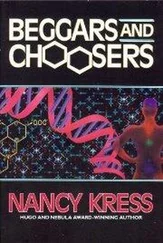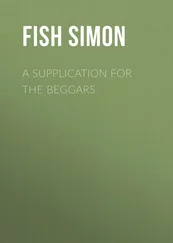Nour El Dine turned toward El Kordi, weighing him with a look, as if to estimate the value of his prey. He too was looking forward to much pleasure.
“You who were laughing, come here.”
El Kordi took hold of a free armchair, placed it facing the table where the inspector was sitting, and settled himself comfortably.
“I won’t make you wait,” he said. “My name is El Kordi and I’m a clerk in the Ministry of Public Works.”
As much as El Kordi despised his position as a civil servant, at the moment he took full advantage of it before this inspector, whom he considered a complete ignoramus. Now, Nour El Dine was far from an ignoramus; in fact, it was his obligatory daily relations with ignorant people that filled him with bitterness. In large part, El Kordi’s scorn was due to the commonplace ideas he held on the stupidity of policemen. Unfortunately for him, fate had set him face-to-face with the sole policeman of remarkable gifts, a man who was anxious to test them against a worthy adversary.
“So, Mr. Bureaucrat frequents brothels! You come here on behalf of the ministry?”
“I come here out of a natural inclination. I believe it’s not against the law to make love. That would be the last straw.”
“No, for the moment it’s not forbidden,” admitted Nour El Dine.
“In future too, I hope. But it wouldn’t surprise me if it were otherwise.”
“I see. I gather you don’t agree with the laws. Do you have something to complain about?”
“I will complain when the time comes,” El Kordi said enigmatically.
Nour El Dine felt a rare kind of satisfaction never experienced during his numerous investigations. He was in the presence of an educated man with real knowledge of the world who was implicated in a crime, rather than just another heap of degenerates incapable of recognizing their own children. This was the godsend he had been searching for for years. His face expressed an almost childish contentment; he felt a resistance, an aggressive tone in this young man that responded to his long-suppressed need for confrontation.
Clearly El Kordi was no young ephebe. However, the masculine beauty of his features, accented by the exoticism of his slanted eyes, strongly affected Nour El Dine. He seemed to relax, to forget his bitter thoughts for a moment. A notable change took place in him; his manners became affable and singularly sweet. But El Kordi was far from noticing this. The hatred he felt for all forms of authority blinded him to such an extent that he could not see the suspicious nature of this unexpected graciousness.
Nour El Dine gloated over him with a kind of lubricious tenderness, as if on the lookout for a sign of complicity.
Why did he suddenly begin to speak in English?
“You come here often?”
“As often as my physical needs require,” answered El Kordi in the same language.
“It seems that you have a marked preference for one of the girls. You are her lover, or am I mistaken?”
This conversation in English unfolded in solemn silence. Understanding nothing, the reporter stopped transcribing. At first, thinking he had gone suddenly deaf, he began cleaning out his ear. Then, feeling things were too much for him, he put his indelible pencil down in front of him and assumed a helpless pose. As for Set Amina, she believed that the use of this foreign language hid a trap meant to ruin her. She sighed and said, “On my honor! It’s the end of the world. Now they’re speaking English in my house!”
Nour El Dine resigned himself to resuming the interrogation in Arabic, not to please Set Amina but because the reporter had begun to object to being left out: he was grumbling through his teeth.
“Are you in contact with the men who come here?” Nour El Dine asked in a worldly tone. “I’d like to know your opinion of them.”
El Kordi grasped the full implication of this insidious question.
“If I understand you correctly, you want me to name the persons who could have committed the crime. Let me tell you, Inspector, I am not an informer.”
“Of course not. You misinterpreted my words. I simply wanted to know the ambience of this house. Can I count on your cooperation?”
“In no way,” said El Kordi indignantly. “I will do nothing to help the police. Besides, I don’t know a thing about this affair!”
“Really, you have no ideas about the crime?”
“I have many ideas. But I doubt that you could understand them.”
“Why? I would be very happy to listen to them.”
“Very well! I believe that society alone is responsible for this crime,” El Kordi said grandiloquently.
“What are you saying, my son!” cried Set Amina. “By Allah! you’ve gone crazy!”
She thought that the “society” El Kordi spoke of referred to all the persons present and to her in particular.
“Be quiet, woman! Continue, my dear fellow, you interest me,” said Nour El Dine, his eyes shining with a strange sympathy.
But that was all; El Kordi went quiet. He was convinced he had said it all in that revolutionary phrase.
“I have nothing more to add,” he said.
It seemed that the source of his revolt had dried up.
“That’s too bad,” said Nour El Dine. “I would have liked you to go into that idea more deeply. It doesn’t matter! We’ll keep it for another time. I still have several questions to ask you.”
It was an auspicious situation. Even if this young man weren’t the killer, he was, nonetheless, a serious lead. Hadn’t he just betrayed himself? This excessive idealism that rejected everything in society was inspired by the same spirit as the murder of the whore. An anarchist! Perhaps there were many who thought like him. Nour El Dine felt himself drawn irresistibly as though toward an abyss; all of his faculties were on the alert. This young civil servant was surely going to lead him to sensational discoveries. It was only a question of not offending him.
“Would you permit me to ask you where you were this afternoon between two and six o’clock?” he continued.
“I was walking,” said El Kordi without taking the time to reflect.
“I see. That’s a very common sort of alibi. But, unfortunately, it cannot be verified. Have you nothing else to offer?”
“Perhaps you could retrace my footprints. My shoes leave marks.” El Kordi raised his foot so that the inspector could admire his shoes at leisure.
Nour El Dine didn’t have time to answer, because just then the door opened and two ambulance attendants in white shirts entered carrying a stretcher. The policeman on guard led them into the dead girl’s bedroom, where they disappeared. After a moment, they came out with young Arnaba’s body covered with a tarpaulin. Seeing this, the girls began to howl and wave their arms about like madwomen. Nour El Dine stopped up his ears and waited patiently for this collective frenzy to end.
El Kordi smiled inanely. The vivid memory of the shabby fellow who proclaimed himself a debt collector with such pride engrossed his thoughts. He had called himself the minister’s friend. After all, why not?
THE SOUND of voices and the brightness of the acetylene gas lamps welcomed Yeghen like a kindly place of refuge. At this hour of the night the Mirror Café was full of a rowdy crowd occupying all of the tables and a slow parade of people strolling up and down the dirt roadway. The ever present radio poured forth a stream of stormy music amplified by loudspeakers, drowning the magnificence of the words, the cries, and the laughter in the same confusion. In this grandiose tumult, ragged beggars, cigarette-butt scavengers, and wandering merchants indulged in a pleasant form of activity, like saltimbanks at a fair. It was like this every night: the atmosphere of a fun fair. The Mirror Café appeared to be a place created by man’s wisdom within the confines of a world doomed to sadness. Yeghen always felt amazed by this idleness and this delirious joy. It seemed that all of these men knew nothing of the anguish, the painful uncertainty of a miserable destiny. True, poverty marked their clothes made of innumerable rags and inscribed its indelible imprint on their emaciated, haggard bodies; yet it hadn’t managed to erase from their faces the shining joy at still being alive.
Читать дальше
